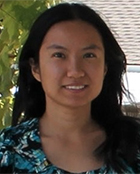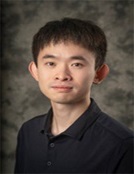Research
The AI Institute excels in innovative research, education, and technology transfer, involving faculty spread across several research groups. Specific areas of research, associated faculty and labs are noted below.
Overview
Working with big data, researchers study the science, engineering, and technology behind producing and maintaining large data streams. The areas of big data that are studied at SBU incorporate a variety of industries including finance, medical, and science as well as governmental implications of big data. Based on the theory that the big data phenomenon is driven by massive amounts of data in need of powerful, scalable algorithms, researchers face the challenge to control errors and sampling processes.
Overview
CS supports the University’s biomedical informatics (BMI) effort to deliver innovative informatics concepts and processes to enhance scientific investigations and healthcare delivery. Cutting edge research in BMI include imaging informatics, computational science, and pathology informatics.
Faculty
Overview
Developing intelligent, high-performance, and reliable computer systems is fundamental to this group of researchers. Their goals are to build successful computer systems that consider all of the challenges of computer interface, architecture, and learning techniques.
Artificial intelligence (AI) incorporates principles and applications using a variety of “intelligent agents”. AI is the study of solutions for problems that are difficult or impractical to solve with traditional methods. The solutions rely on a broad set of general and specialized knowledge representation schemes, problem solving mechanisms and learning techniques. They deal with sensing (e.g., speech recognition, natural language understanding, computer vision), problem-solving (e.g., search, planning), and acting (e.g., robotics) and the architectures needed to support them (e.g., agents, multi-agents).
Machine learning researchers develop algorithms and systems based on specific computations and theory that improves user data and experience. By analyzing data captured in databases and from data structures, algorithms that track and identify cognitive and user processes are researched. Natural language learning, statistical relational learning, and active learning are some of the areas that explored.
Faculty
Overview
The focus of this research area addresses the challenges of modern power generation through transmission and distribution, to delivery and consumption. Researchers study CS issues related to networking, cybersecurity, modeling of power grids, business and economic aspects of grid systems.
Labs
Overview
Natural Language Processing (NLP) is a branch of computer science that specializes in the communication between humans and computers. More specifically, it deals with the interactions between computers and the language of humans, which can be notoriously difficult to understand. In the middle of the twentieth century, industry pioneers such as Alan Turing began working on algorithms that would allow computers to decipher meaning from human input. Over the decades, this expanded and evolved very rapidly, and today NLP has given us products such as Google and Siri.

























































